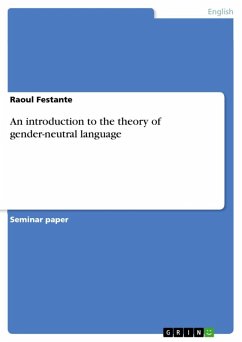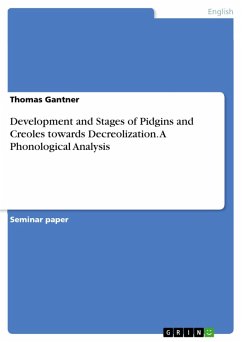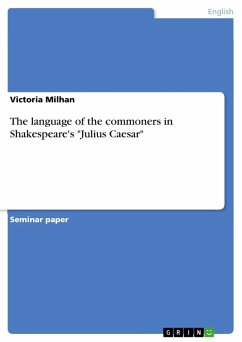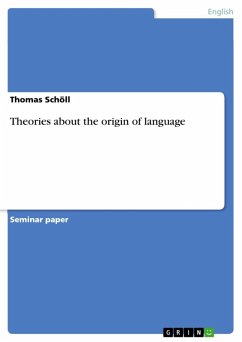
The Scandinavian influence on the English language (eBook, ePUB)
Sofort per Download lieferbar
Statt: 15,95 €**
13,99 €
inkl. MwSt. und vom Verlag festgesetzt.
**Preis der gedruckten Ausgabe (Broschiertes Buch)
Alle Infos zum eBook verschenkenWeitere Ausgaben:

PAYBACK Punkte
0 °P sammeln!
Seminar paper from the year 2005 in the subject English Language and Literature Studies - Linguistics, grade: 71 von 80, University of Manchester (School of Languages, Linguistics and Cultures), course: Introduction to Middle English Language, language: English, abstract: In the history of English, the language came into contact with different speech communities. Influences of Celtic, Latin, Scandinavian and French left their mark from the beginning in Anglo-Saxon times onwards, and the colonial expansion of the British Empire in the last three centuries resulted in the contact with even more ...
Seminar paper from the year 2005 in the subject English Language and Literature Studies - Linguistics, grade: 71 von 80, University of Manchester (School of Languages, Linguistics and Cultures), course: Introduction to Middle English Language, language: English, abstract: In the history of English, the language came into contact with different speech communities. Influences of Celtic, Latin, Scandinavian and French left their mark from the beginning in Anglo-Saxon times onwards, and the colonial expansion of the British Empire in the last three centuries resulted in the contact with even more speech communities. Through these language contacts, English changed a lot - it showed the tendency to incorporate foreign influences, especially lexical ones, more likely in the first place; its grammar changed from being and analytic one towards being synthetic; and in terms of the lexicon, it changed from being a Germanic to a partly Romanic influenced language. In this essay, I want to examine the influence of the Scandinavian language on English and to what extent it was responsible for the general changes mentioned above. 45 per cent of the commoner words and 25 per cent of the general lexis1 in the present day English lexicon are a result of the language contact between Old English and Old Norse during the period of Scandinavian invasions and settlement in the eighth and ninth century - but the lexical influences are only one result of the language contact and I will try to show the other effects the Scandinavian influence had on English as well. Abbreviations The Abbreviations I will use in this paper are "EME" for Early Middle English, "ModE" for Modern English, "ON" for Old Norse, "OE" for Old English and "PDE" for Present Day English.
Dieser Download kann aus rechtlichen Gründen nur mit Rechnungsadresse in A, B, BG, CY, CZ, D, DK, EW, E, FIN, F, GR, HR, H, IRL, I, LT, L, LR, M, NL, PL, P, R, S, SLO, SK ausgeliefert werden.













